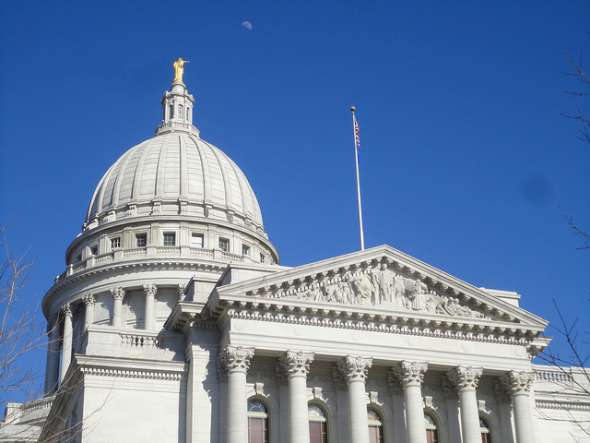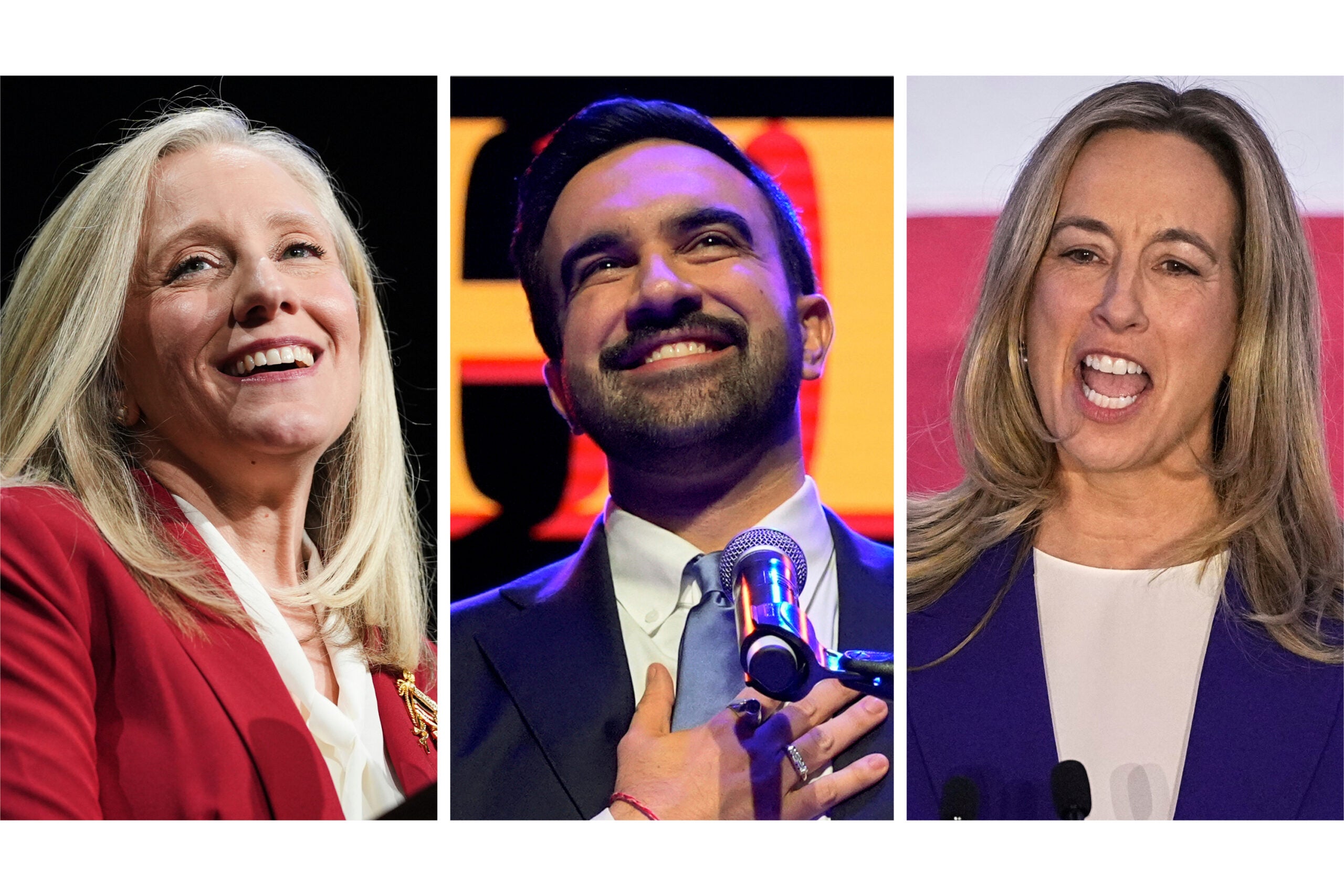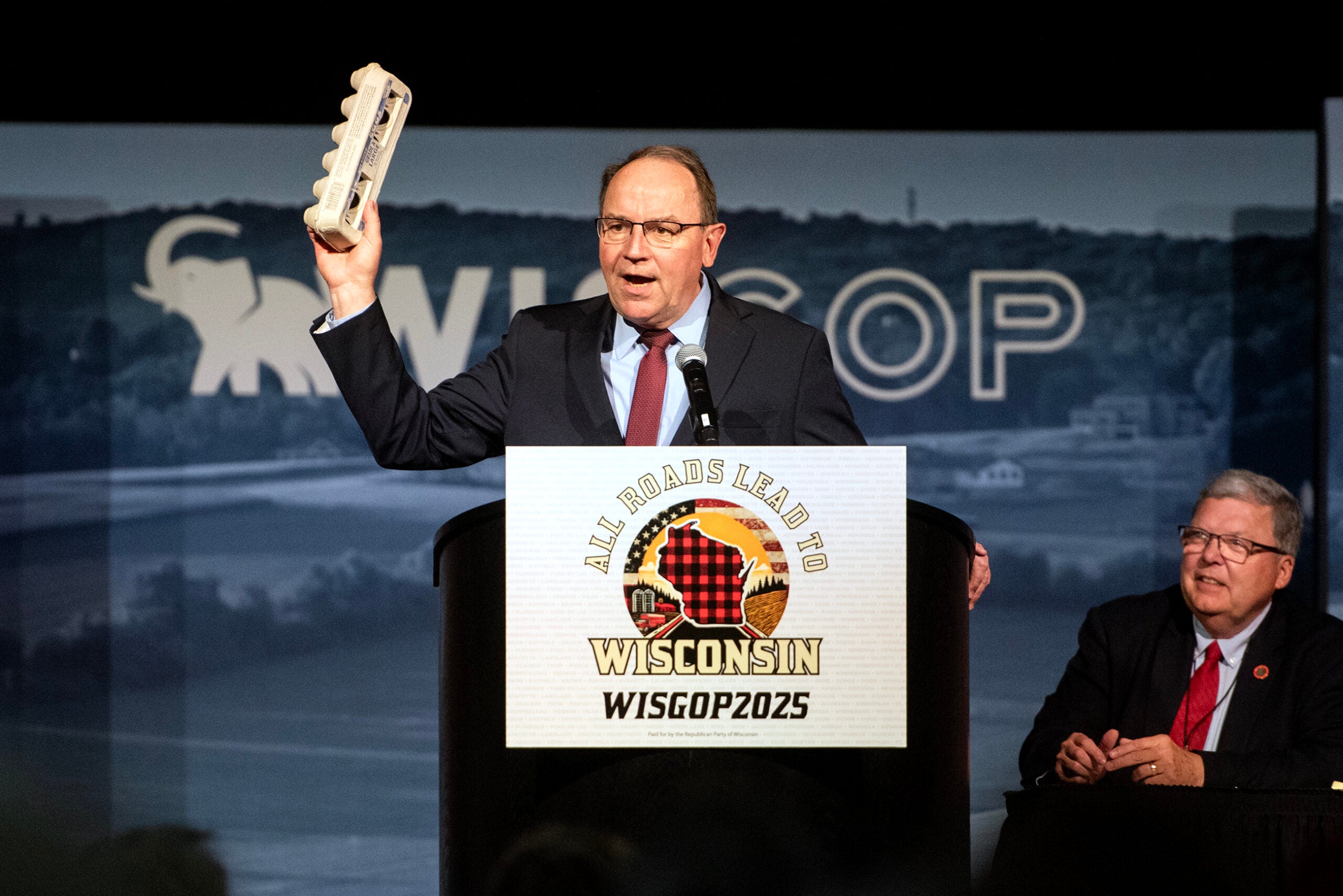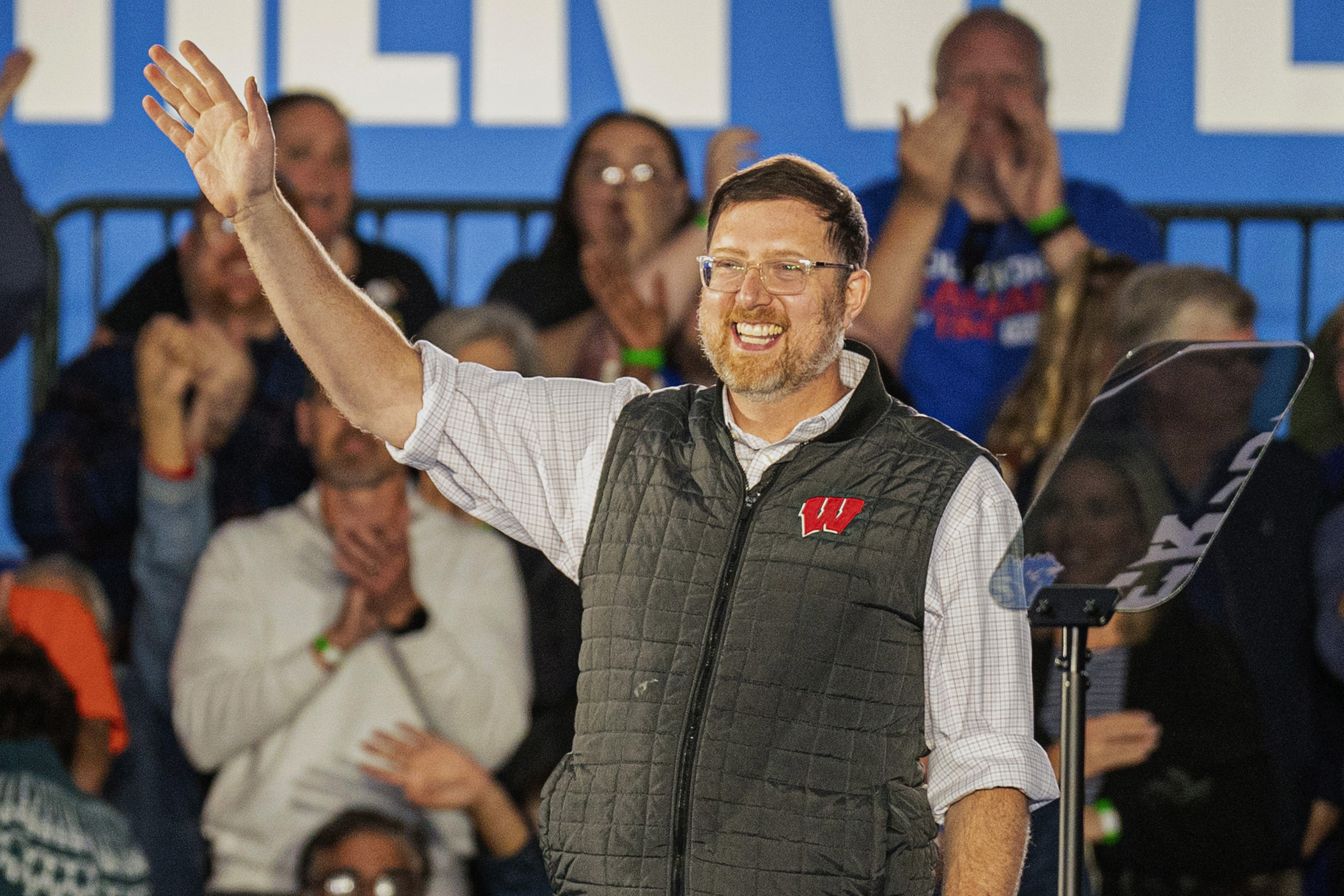When Wisconsin voters go to the polls a year from now, they’ll decide whether or not they want to give Republican Gov. Scott Walker a third term in office.
What’s less clear is which Democratic candidate in a large and growing field will be on the November ballot challenging the governor.
The half dozen or more Democrats who have formally launched their campaigns have their work cut out for them getting to know voters, with most having never run in a statewide campaign for a general election.
News with a little more humanity
WPR’s “Wisconsin Today” newsletter keeps you connected to the state you love without feeling overwhelmed. No paywall. No agenda. No corporate filter.
In downtown Madison over the weekend, people willing to talk about the race were unsure of how many Democratic candidates were running.
“I know two for sure, probably three,” said Nancy Brace, who described herself as a conservative Democrat. “I need to get more knowledgeable.”
Progressive voter Doug Kratsch of Madison had heard of most of the candidates, but he was still learning their names.
“The assemblyman who’s running from western Wisconsin,” Kratsch asked. “‘Mochs’ or something like that?”
He was referring to state Rep. Dana Wachs, D-Eau Claire.
“Wachs, OK,” Kratsch said. “I don’t know anything about him.”
As Kelly O’Connor and Tyler Williams of Madison listened to a list of Democratic candidates, they said they didn’t know most of them.
O’Connor thought she might recognize one of the names: Matt Flynn.
“Familiar, but I don’t know why,” O’Connor said.
“It’s because of the football player,” Williams said. That would be Matt Flynn, the former backup quarterback for the Green Bay Packers.
“Oh, dang it,” she said. They both laughed.
“I’m laughing because I’d answer exactly the same as you,” O’Connor said.
O’Connor and Flynn both said their focus has been elsewhere this year, including on national politics.
Big Democratic Primaries Everywhere
While it’s unusual for Wisconsin to have so many Democrats running in a gubernatorial primary, Jennifer Duffy, a senior editor for the Cook Political Report, said the same thing is happening around the country this year.
“It looks a lot like the fields I’m seeing in a number of states,” Duffy said.
At least six candidates have already filed paperwork to run for governor and formally announced their candidacy in Wisconsin.
That list includes State Superintendent of Public Instruction Tony Evers, former state party chair Matt Flynn, Milwaukee businessman Andy Gronik, activist Mike McCabe, Alma state Sen. Kathleen Vinehout and Eau Claire state Rep. Dana Wachs.
Duffy said there are 36 states with elections for governor in 2018. Republicans, including Walker, are defending 27 of them.
“I don’t think Walker is in terrible shape,” Duffy said. “He faces some challenges, not the least of which is, regardless of the state, third terms are not easily come by. Usually voters get restless after eight years.”
Duffy said Walker also faces a fired up Democratic Party.
“It’s very unusual to see the emotion and the intensity that always accompanies a presidential election to be still in full force a year out, a year away from that,” Duffy said. “And that’s sort of where Democrats are right now.”
A Growing Field
Duffy said she’d be surprised if Wisconsin’s Democratic field is as big by spring as it is today. But right now, all signs are that it’s continuing to grow.
Madison Mayor Paul Soglin said he’s given a lot of thought to running.
“And I’m definitely leaning towards a candidacy for governor,” Soglin said.
Soglin said an announcement could come early next year. And he rejects the idea that a Madison mayor can’t win in a statewide race for governor.
“I’m not going to get involved with the pundits who are touting this business that a Madison or a Milwaukee progressive can’t win,” Soglin said. “Very frankly, I’d just as soon that they stay with their fantasies and not be prepared for the kind of successful campaign that I can run.”
Former Madison Democratic state Rep. Kelda Roys said she’s also considering running for governor. “Politically, there’s still a lot of time,” she said.
Roys said she wants to have everything ready to run for governor so that if she does decide to run, she can hit the ground running.
But she said that if a consensus choice for Democrats begins to emerge by early next year, she’d consider supporting them instead.
“If there’s another candidate who seems to be doing really well and is making a strong case for him or herself, I would certainly be interested in backing that person,” Roys said.
Several other candidates have also filed the formal paperwork to run for office, including Michele Doolan, Bob Harlow, Dave Heaster, former Madison state Rep. Brett Hulsey, Kurt Kober, Jared Landry, Andrew Lust, Jeffrey Rumbaugh, and Ramona Whiteaker.
How Many Is Too Many?
There are diverging opinions on whether the big Democratic field will help or hurt the party.
Duffy said that if an outside PAC or other third-party group keeps pressure on Walker during primary season, it would keep the race competitive.
“If that doesn’t exist, I think that puts Democrats at a bit of a disadvantage because it essentially gives Walker a free pass through that primary,” Duffy said.
Milwaukee Mayor Tom Barrett lost to Walker in the 2010 general election and the 2012 recall election.
“This is a different dance,” Barrett said of the 2018 election. “You want to see who really emerges.”
Back on the streets of Madison, Walker supporter Glenn Menzia is glad to see a big Democratic field.
“Some would call it enthusiasm,” Menzia said. “Others would call it just a bunch of people wanting to see if they can run for governor. And that’s what I would call it.”
Democratic voter Carol Morley of Neenah wants to defeat Walker, but she’s worried the Democratic field is too big and too unknown.
“Well, since we’re a year out, they should be well-known,” Morley said. “So that makes me worry a little bit.”
Doug Kratsch, the progressive from Madison, said it’s still early in the race, and he’s not concerned that there are too many candidates.
“I think it means, to me, that there’s a lot of people thinking that Walker can be beat,” Kratsch said. “I’d be more worried if there were no candidates.”
Wisconsin Public Radio, © Copyright 2025, Board of Regents of the University of Wisconsin System and Wisconsin Educational Communications Board.







